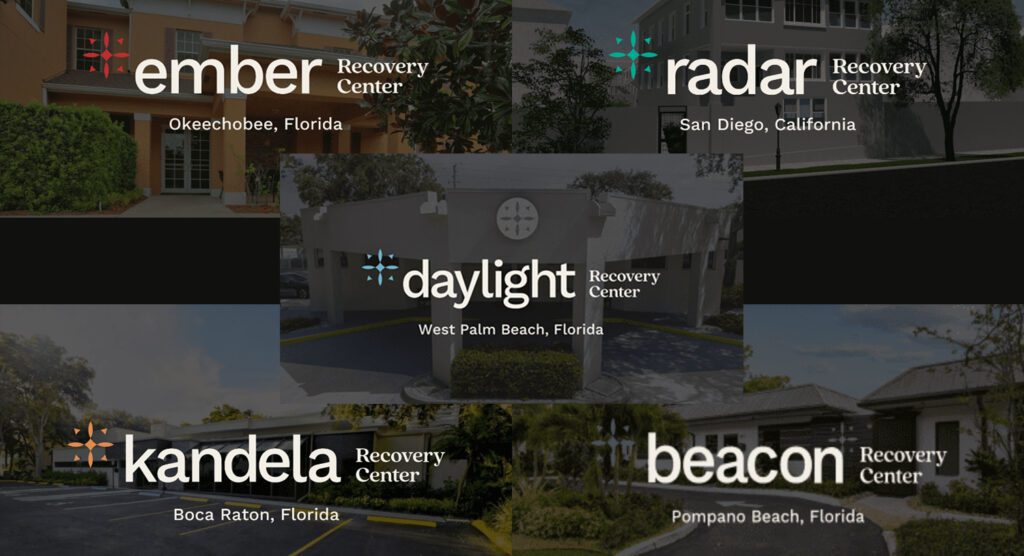Science-backed, clinically-proven addiction treatment.
There are various substance abuse treatment options available to people suffering from addiction and mental illness. As everyone’s needs are different, treatment methods will vary depending on a variety of factors.
Alcohol Withdrawal & Treatment
Alcohol is a psychoactive drug that affects the functions of the brain. It is a commonly consumed substance during social gatherings to celebrate special occasions and important milestones. Addiction to alcohol will develop over time if it is taken excessively. Alcohol addiction is a disease that affects people from all walks of life. Alcohol Use Disorder affects the functions of the brain and alters a person’s behavior. Signs of alcohol withdrawal are manifested through physical, behavioral, and psychological changes.
Alcohol withdrawal is a serious medical condition that requires professional treatment. It occurs when a person has become physically dependent on alcohol and suddenly stops drinking, causing dangerous and potentially life-threatening symptoms. These symptoms can range from mild to severe and include confusion, agitation, tremors, hallucinations, seizures, and even death. The best way to manage alcohol withdrawal is to seek professional help from a doctor or addiction specialist.
They will be able to assess the severity of the withdrawal and recommend the best course of treatment, which could include medications to help manage symptoms, counseling, and support groups. Once the withdrawal symptoms have been addressed and managed, the focus should be on treating the underlying cause of alcoholism. This could include therapy, lifestyle changes, and support groups. With the right treatment and support, alcoholics can find long-term recovery and lead healthier, happier lives.
Ambien Withdrawal & Treatment
Ambien is a popular sleeping medication, but it can also be addictive and cause withdrawal symptoms if not taken as prescribed. The most common symptoms of Ambien withdrawal include insomnia, headaches, nausea, muscle aches, and increased anxiety. If someone is experiencing any of these symptoms, it is important to seek professional help as soon as possible. Ambien addiction treatment typically involves a combination of medication, counseling, and lifestyle modifications. Medication may include non-addictive sleeping pills, antidepressants, or anti-anxiety medications to help with symptoms. Counseling can also be an important part of treatment, as it can provide the support and guidance needed to help individuals recover. Finally, lifestyle changes like getting enough sleep, eating well, and exercising regularly are essential to maintaining a healthy and successful recovery. With the right treatment and a commitment to recovery, it is possible to overcome Ambien addiction and withdrawal.
Barbiturates Withdrawal & Treatment
Barbiturates are a class of drugs that act as depressants on the central nervous system. They are commonly used to treat anxiety and insomnia, but they can be highly addictive. Barbiturate withdrawal is a serious condition that can occur when someone stops taking a barbiturate after being addicted to it. Symptoms of withdrawal include anxiety, agitation, insomnia, and depression. The severity of the symptoms can vary depending on the type of barbiturate and the length of time it was taken. Treatment of barbiturate withdrawal should be done under the supervision of a professional. Treatment may involve medications to help with withdrawal symptoms, as well as psychological counseling to help an individual learn to cope with their addiction and abstain from using barbiturates. With proper treatment, someone can safely and effectively recover from a barbiturate addiction.
Benzodiazepine Withdrawal & Treatment
Benzodiazepine withdrawal is a serious medical condition and should be treated accordingly. Benzodiazepines, although prescribed to help with symptoms of anxiety and insomnia, can be addictive and cause an array of physical and mental health issues. Withdrawal symptoms can be particularly severe and range from difficulty sleeping, irritability, nausea, and trembling to more severe symptoms such as seizures and psychosis. Withdrawal should not be attempted without medical supervision as it can be life-threatening. Treatment for benzodiazepine withdrawal often begins with tapering down the medication dosage gradually, under the guidance of a physician. This helps to reduce the intensity of the symptoms and prepare the body for the full cessation of the medication. Counseling and therapy are also important to address the underlying reasons for drug abuse and to keep the patient motivated during the withdrawal process. For those who have developed a physical dependence on benzodiazepines, treatment should involve both medical and psychological support. Ultimately, with the right help and support, individuals can slowly and safely recover from benzodiazepine addiction.
Cocaine Withdrawal & Treatment
Cocaine addiction is a severe problem that can cause serious physical, emotional, and financial hardship. The first step to overcoming the issue is to understand cocaine withdrawal and treatment. Withdrawal is the period of time during which a person experiences the symptoms that come with ceasing cocaine use. These symptoms vary from person to person but can include fatigue, depression, and intense cravings. Withdrawal is not only physically uncomfortable, but it can also be dangerous and should be monitored by a healthcare professional.
Treatment for cocaine addiction usually starts with an inpatient detoxification program. This process helps to flush the drugs from the body and can alleviate some of the symptoms of withdrawal. Following detox, there are a variety of treatments available, such as cognitive-behavioral therapy and 12-step programs. The goal of these treatments is to help the individual learn to cope with addiction, manage cravings, and modify their behavior for long-term success. With the right support and treatment, individuals can move beyond cocaine addiction and reclaim their life.
Fentanyl Withdrawal & Treatment
Fentanyl is a potent painkiller that is highly addictive. Like other opioids, fentanyl withdrawal syndrome treatment uses both detoxification and behavioral therapies. Severe symptoms of fentanyl withdrawal can be extremely uncomfortable and even painful as it progresses further into the fentanyl withdrawal timeline. The process of fentanyl treatment begins with detoxification. Medications such as buprenorphine and methadone are given to patients to reduce the cravings and fentanyl withdrawal symptoms they experience. Naltrexone is another medicine that is given to minimize the effect of fentanyl on the brain.
Additionally, fentanyl treatment also includes counseling. Post-detox therapy includes cognitive behavioral therapy which guides patients on how to deal with the triggers surrounding relapse and stress related to fentanyl withdrawal. Motivational therapy and contingency management are also done to encourage fentanyl users to continue with healthy living. This method uses a rewards system that allows the patients to earn items by living in sobriety.
Fentanyl withdrawal treatment is essential to freedom from fentanyl dependence. Fentanyl treatment centers offer both inpatient and outpatient settings at specialized facilities. If you or someone you love is experiencing signs of fentanyl withdrawal, book a fentanyl treatment near you.
Heroin Withdrawal & Treatment
Heroin withdrawal and treatment is a complex process, and it can be difficult to overcome without the right help. The first step is to understand the withdrawal symptoms, which can range from mild to severe. These can include nausea, sweating, muscle aches, anxiety, insomnia, and more. It’s important to seek medical attention, as some of these symptoms can be dangerous. Once the withdrawal symptoms are under control, the next step is to find the right treatment program. This can include therapy, medication, support groups, and lifestyle changes, depending on the individual’s needs. It’s important to find a program that is tailored to the person’s specific needs, as this increases the chances of success. Heroin addiction is a serious problem, but with the right help and treatment, it can be overcome.
Inhalant Withdrawal & Treatment
Inhalants are common household chemicals that are harmful to the lungs and the nervous system. Some symptoms of inhalant withdrawal include damaged nerve cells and hypoxia–the lack of oxygen in tissues. Inhalant withdrawal treatment helps detach the individual from the dangers of inhalants. The first step of inhalant withdrawal is detoxification. This process involves the confiscation of inhalants and the decontamination of the patient’s clothes and properties. This way, exposure to inhalants is cut. This process is best done with medical assistance. One of the signs of inhalant withdrawal is damaged organs. In certain inhalant treatment centers, damaged organs due to inhalants are also treated during inhalant withdrawal syndrome treatment. Depending on the inhalant withdrawal symptoms, individuals may opt for outpatient, partial hospitalization, or inpatient care.
Post-detox treatments include cognitive behavioral therapy which motivates people to continue living without using inhalants. This can also be supported with incentives to motivate individuals better. Lastly, at the end of the inhalant withdrawal timeline, patients are provided with group therapy and support groups. Although inhalants are usually common household items, they can still be dangerous and life-threatening if misused. Inhalant treatment is a necessary intervention to get back on track. If you or anyone you know is experiencing inhalant withdrawal symptoms, cal a center that offers inhalant treatment near you.
Methamphetamine Withdrawal & Treatment
Methamphetamine is a stimulant that causes a short, immediate, euphoric feeling in the brain. The short “high” causes a frequent intake of meth. There are numerous Currently, there is no FDA-approved medication for meth withdrawal treatment. Medical detox is the first stage of meth withdrawal syndrome treatment. Physicians prescribe Modafinil to regulate sleep and cravings, which are common signs of meth withdrawal. Other drugs like Bupropion, which regulates dopamine in the brain, also help lessen the symptoms of meth withdrawal experienced by the patient. These drugs help lessen the effect of the severity of the symptoms during the meth withdrawal timeline.
Meth treatment centers also use behavioral therapy post-detox such as Cognitive-Behavioral Therapy which teaches patients drug-free strategies to cope with meth triggers and prevent relapse. There are also specialized programs like the Matrix Model, a 16-week program that provides patients with counseling and motivation to continue with non-drug-related activities. Therapists also encourage their patients to continue being meth-free by using the prizes to reward good behavior.
The appropriate meth treatment depends on the severity of the meth withdrawal symptoms experienced by the patient. Severe cases and those with underlying mental diseases will benefit more from inpatient treatment programs. Meth withdrawal experiences vary for each person. Coordinate with nearby centers to know the different available meth treatments near you.
Opioid Withdrawal & Treatment
Opioids are painkillers used for surgeries for injuries. Symptoms of opioid withdrawal are seen after cutting the use of opioids for a long period of time. Opioid withdrawal syndrome treatment is a process done by medical professionals to aid people in recovering from opioid dependence. Admission to an opioid treatment center near you helps make the journey through the opioid withdrawal timeline easier and more comfortable. Doctors taper opioids as a way to detox the patient from the drug. They gradually lessen the amount given to patients until he is no longer dependent. Additionally, physicians prescribe medications to minimize the signs of opioid withdrawal. Buprenorphine and methadone are given to people who experience opioid cravings. It also helps lessen the severity of opioid withdrawal symptoms.
Detoxification is followed by another opioid withdrawal treatment: rehabilitation. Group and individual counseling are given to individuals to assist them in their opioid withdrawal. Specialized opioid treatments are also provided for people who require special or additional needs. Different opioid centers provide various programs. Assess your needs wisely before choosing an opioid treatment near you.
Get confidential help 24/7.
If you or a loved one are suffering with drug abuse or alcohol addiction, reach out to Flyland Recovery Network for addiction help.








